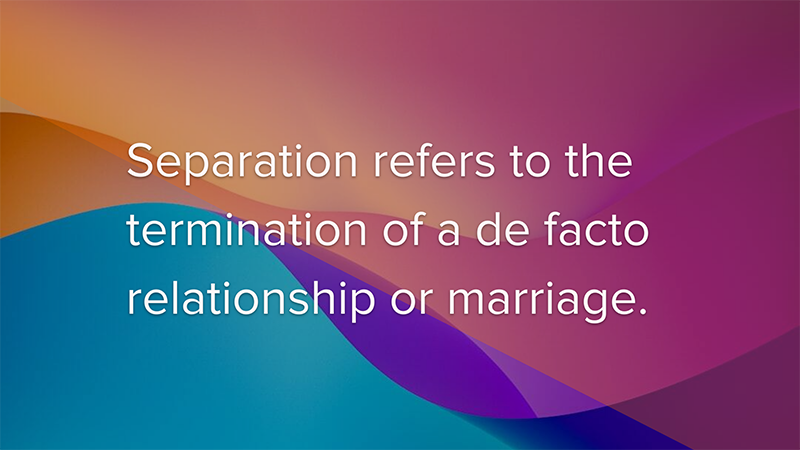Separation or divorce is a challenging phase of life, both emotionally and financially. Amidst all the strong feelings, handling practical matters like splitting property, deciding child custody, and sorting out finances during a long-term breakup can become very overwhelming. Here, two primary legal approaches can help in easing the process – Consent Orders and Financial Agreements. This article aims to provide an in-depth understanding of Consent Orders Vs Financial Agreements, helping you make an informed decision.
Before delving into consent orders and financial agreements, it’s crucial to understand what constitutes a separation. Separation refers to the termination of a de facto relationship or marriage. The Family Law Act 1975 Sect 49 explains that couples, married or de facto, can be considered separated even if they live under the same roof.

In the context of family Law, a Consent Order is an order issued by the Family Court after both parties have reached an agreement on the terms of their settlement, and they have submitted it to the court in order to formalise it. Consent Orders can address a range of matters, including parenting arrangements for children (known as ‘parenting orders’) and financial matters like property division and spousal maintenance. The court must find the terms of the agreement “just and equitable” before approval.
Financial Agreements, often referred to as Binding Financial Agreements (BFA), are private contracts between parties that outline how property, financial resources, and spousal maintenance will be handled during or after relationship breakdown. These agreements, recognised under the Family Law Act 1975, allow couples to manage these obligations without the need for court proceedings.
The primary difference between Consent Orders and Financial Agreements lies in their interaction with the court system:
Court Involvement: Consent Orders require court approval and are subject to court review. In contrast, Financial Agreements do not need to be lodged with the court for approval, nor are they subject to court review.
Confidentiality: Information on Consent Orders is available on public record, while details within Financial Agreements are confidential between the parties.
Consent Orders allow a third-party adjudicator (a judge) to assess your property settlement arrangement or agreement for fairness and equity, providing an additional layer of protection for both parties. They also allow for the transfer of property without having to pay stamp duties.
However, the process of obtaining Consent Orders can be more expensive than drafting a BFA. It also gives less control over the outcome to the parties, as the court may determine the proposed split as inequitable.
Financial Agreements offer parties the benefit of certainty, privacy, and control. They allow couples to determine the division of their assets without the intervention of a third party or court proceedings. This can significantly reduce the cost and stress associated with property settlement.
Another key advantage of a Financial Agreement is that property transfers under these agreements attract stamp duty exemptions, which can save a substantial amount of money when real estate is being transferred.
However, like Consent Orders, Financial Agreements should be entered into with a clear understanding of their legal implications. Both parties must receive independent legal advice before signing the agreement to ensure they understand their rights and obligations.
When couples cannot reach an agreement on property settlement, they might have to apply to the Family Court for Property Orders. This five-step process determines the division of property based on the existing legal and equitable interests of each party, their contributions, future needs, and other relevant factors.
Although this option can be expensive and possibly damage the relationship further, it may be the only alternative available if an agreement cannot be reached.
Divorce is a separate process that legally dissolves the marriage. It’s important to note that property settlement can be finalized any time after separation and before the divorce application. However, applications for property or spousal maintenance settlements must be filed within 12 months of the divorce, or the court’s permission will be needed to apply out of time.
The process of separation and divorce is undoubtedly challenging. However, understanding your options and having a clear plan can make the process more manageable.
Whether you choose Consent Orders or Financial Agreements, it’s crucial to seek legal advice and ensure you understand your rights and obligations. A thoughtful, informed approach can help protect your interests, reduce financial and emotional stress, and pave the way for a smoother transition to the next phase of your life.
Remember, every situation is unique, and what worked for someone else might not work for you. Take the time to understand your options, seek advice, and choose the path that best suits your circumstances.